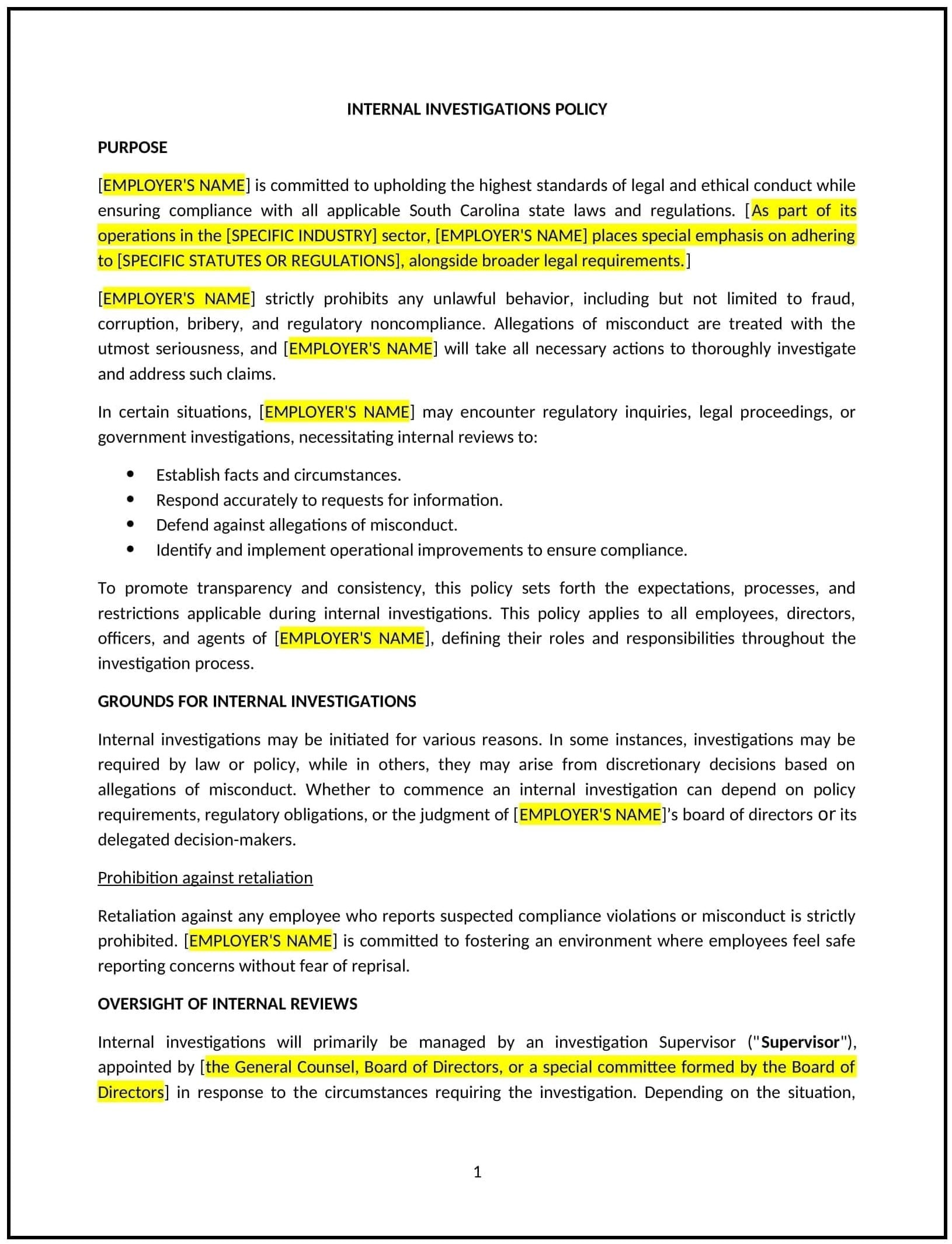Internal investigations policy (South Carolina): Free template
Got contracts to review? While you're here for policies, let Cobrief make contract review effortless—start your free review now.

Customize this template for free
Internal investigations policy (South Carolina)
This internal investigations policy is designed to help South Carolina businesses establish guidelines for conducting fair and thorough investigations into workplace issues, such as misconduct, harassment, or policy violations. It outlines procedures for initiating investigations, gathering evidence, and resolving issues while maintaining confidentiality and impartiality.
By adopting this policy, businesses can address workplace concerns effectively, ensure compliance with legal standards, and foster a culture of accountability and transparency.
How to use this internal investigations policy (South Carolina)
- Define investigation scope: Explain what types of issues warrant an internal investigation, such as harassment, discrimination, or theft.
- Establish investigation procedures: Outline steps for initiating and conducting investigations, including evidence collection, interviews, and documentation.
- Ensure confidentiality: Protect the privacy of all parties involved in the investigation to maintain trust and impartiality.
- Assign investigators: Designate trained individuals or teams to handle investigations, ensuring they are unbiased and qualified.
- Address resolution: Describe how investigation findings will be used to resolve issues, such as disciplinary action or policy changes.
- Review and update: Assess the policy annually to ensure it aligns with evolving legal standards and business needs.
Benefits of using this internal investigations policy (South Carolina)
This policy offers several advantages for South Carolina businesses:
- Promotes accountability: Ensures workplace issues are addressed fairly and transparently.
- Protects employee rights: Maintains confidentiality and impartiality during investigations.
- Aligns with legal standards: Helps businesses comply with state and federal employment laws.
- Builds trust: Demonstrates a commitment to resolving workplace concerns effectively.
- Reduces risks: Minimizes the potential for legal disputes or reputational damage.
Tips for using this internal investigations policy (South Carolina)
- Communicate the policy: Share the policy with employees and include it in the employee handbook.
- Provide training: Educate investigators and managers on conducting fair and thorough investigations.
- Monitor adherence: Regularly review investigation processes to ensure compliance with the policy.
- Address issues promptly: Take corrective action if investigations are mishandled or delayed.
- Update regularly: Assess the policy annually to ensure it aligns with evolving legal standards and business needs.